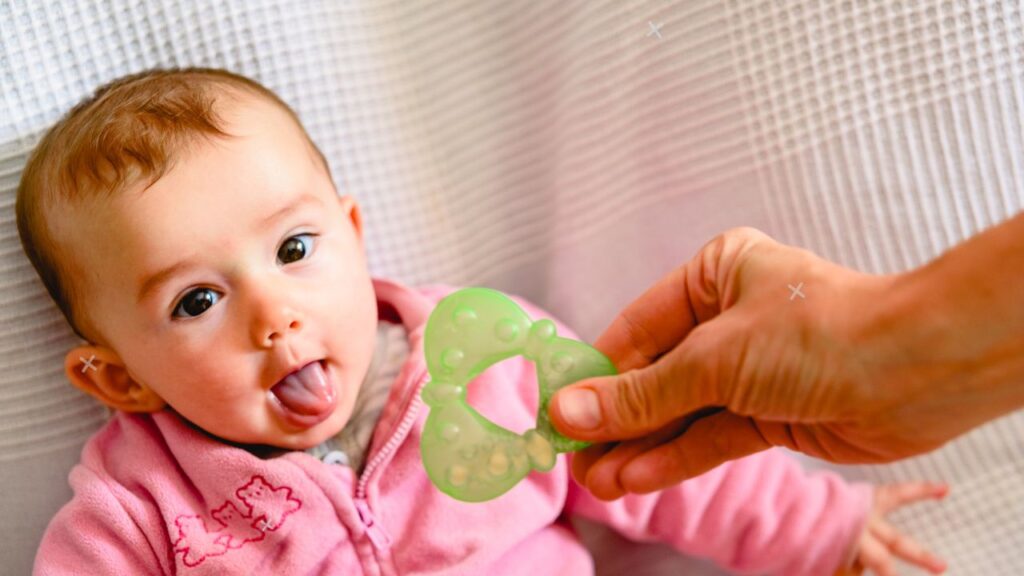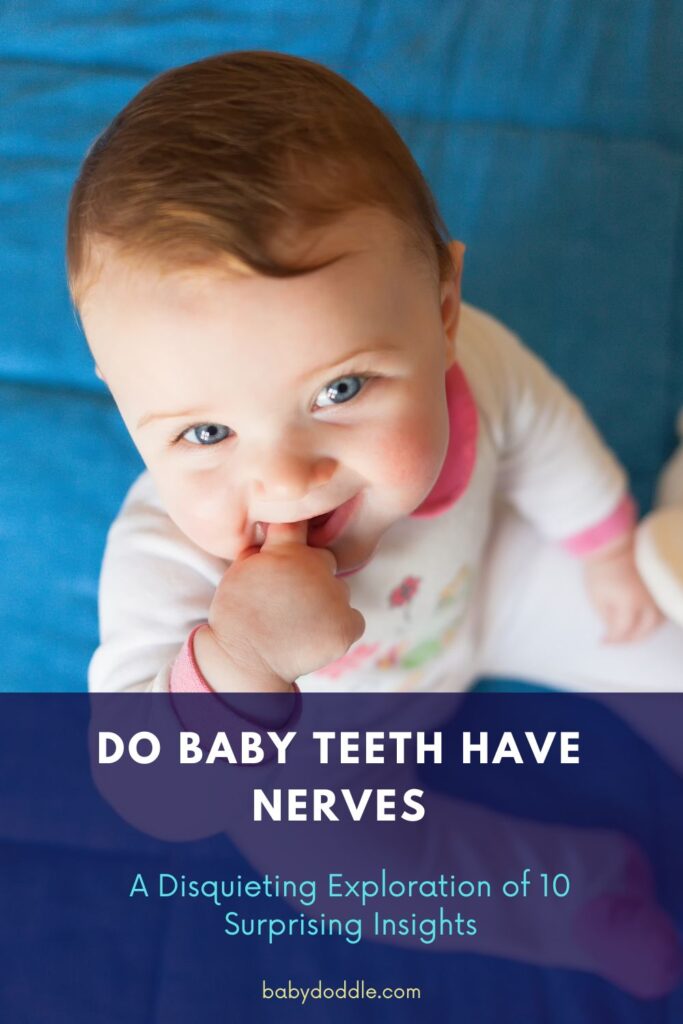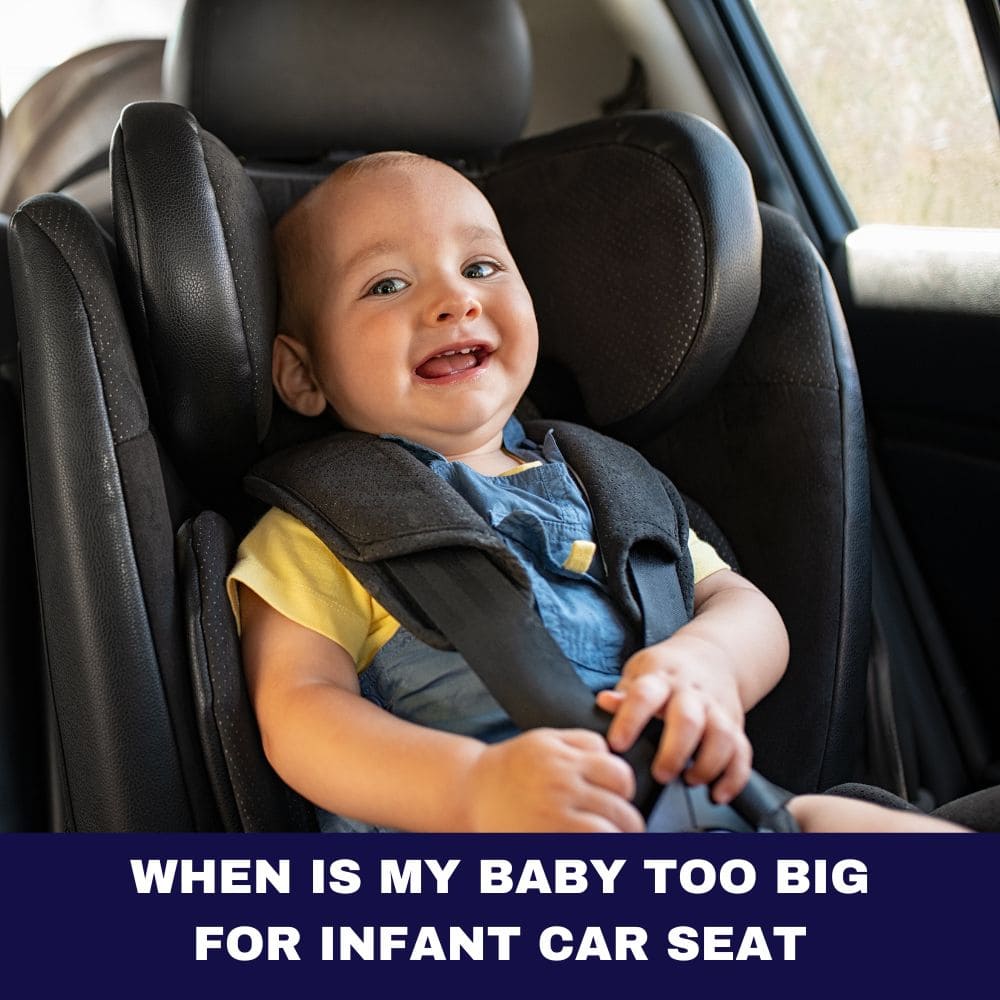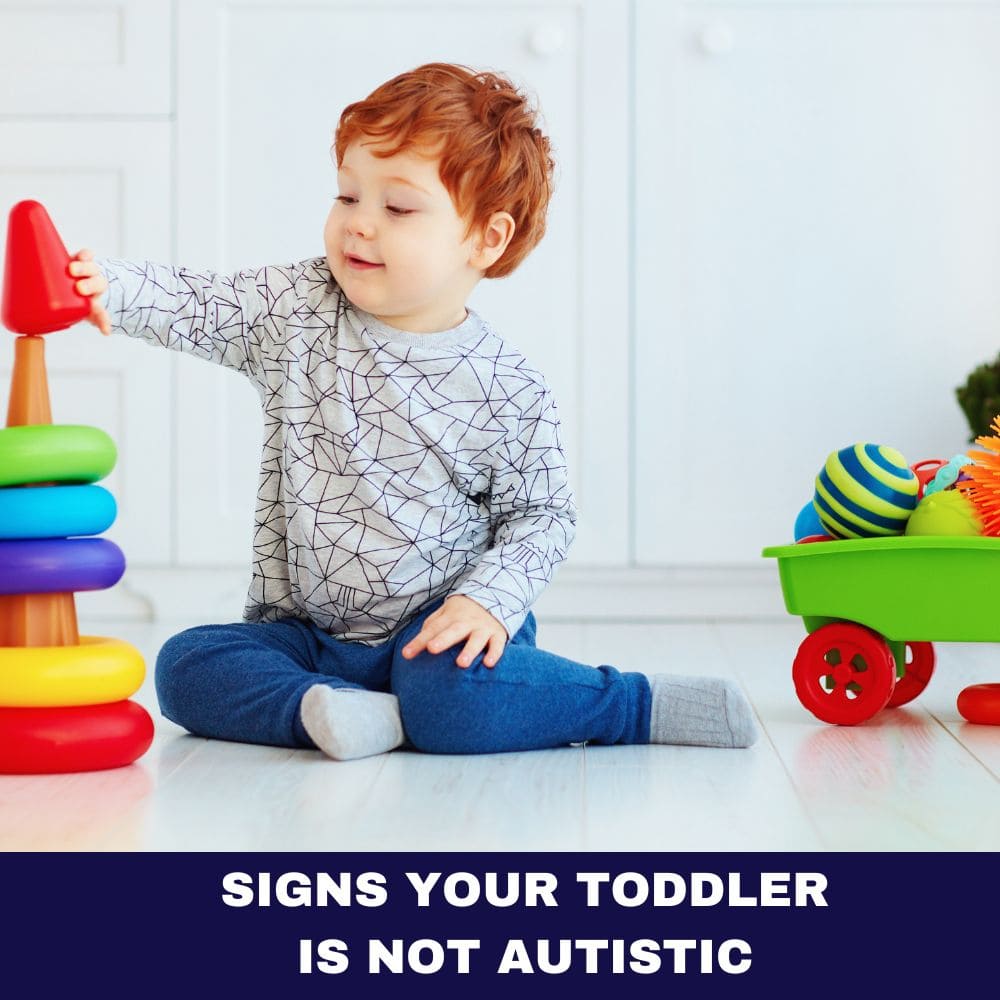Ah, the joys of parenthood! From the moment those tiny fingers wrap around yours, the world takes on a whole new meaning. Every milestone, every first, is etched into your heart forever. And amidst the laughter and the tears, the questions begin to arise – questions that might seem simple on the surface but hold profound significance for your little one’s well-being. One such query that often puzzles parents is: Do baby teeth have nerves?
Buckle up, dear reader, for today we embark on a disquieting exploration, unearthing 10 surprising insights that will shed light on this intriguing topic. Brace yourself, for some of these revelations might just leave you questioning everything you thought you knew about those pearly whites that grace your child’s smile.

Do Baby Teeth Actually Have Nerves? Unraveling the Truth
Let’s dive right into the heart of the matter, shall we? The short answer is yes, baby teeth do indeed have nerves. But hold on, there’s more to this story than meets the eye. Just like their permanent counterparts, baby teeth have an intricate anatomical structure that includes the following components:
- Enamel: The hard, protective outer layer that gives teeth their shiny appearance.
- Dentin: The dense, bony tissue that makes up the bulk of the tooth.
- Pulp: A soft, nerve-filled core that extends into the roots of the tooth.
It’s this pulp, nestled deep within the tooth, that contains the nerves and blood vessels responsible for sensation and nourishment. So, while baby teeth may appear small and innocuous, they are equipped with a complex nervous system, just like their adult counterparts.
The Anatomy of Baby Teeth: A Closer Look
To truly appreciate the significance of nerves in baby teeth, let’s take a closer look at their anatomy. Baby teeth, also known as primary or deciduous teeth, are the first set of teeth that emerge from the gums. They typically begin erupting around 6 months of age and continue to appear until around the age of 3.
Each baby tooth consists of four main layers:
- Enamel: This hard, white outer layer protects the tooth from wear and tear.
- Dentin: The yellowish layer beneath the enamel, composed of tiny tubes that extend towards the pulp.
- Pulp: The innermost layer containing blood vessels, nerves, and connective tissue.
- Cementum: A thin layer that covers the root of the tooth, helping it anchor to the jawbone.
It’s important to note that while the enamel and dentin layers of baby teeth are thinner than those of permanent teeth, the pulp chamber (where the nerves reside) is relatively larger in comparison. This means that any injury or decay that reaches the pulp can trigger a more significant reaction and discomfort.
Why Do Baby Teeth Hurt? Demystifying the Pain
Now that we understand the presence of nerves in baby teeth, it’s easier to comprehend why they can sometimes cause discomfort or pain. Here are a few common reasons why your little one might experience tooth pain:
- Tooth Decay: When bacteria and acids attack the enamel and dentin layers, they can eventually reach the pulp, causing inflammation and pain.
- Trauma: A fall, a bump, or even excessive bite force can cause damage to the tooth, potentially affecting the nerves within.
- Teething: As new teeth erupt through the gums, the pressure and inflammation can lead to temporary discomfort.
- Tooth Sensitivity: Thin enamel or exposed dentin can make baby teeth more sensitive to hot, cold, or sweet foods and drinks.
If your child is experiencing persistent tooth pain, it’s crucial to seek professional dental care. A pediatric dentist can accurately diagnose the cause and provide appropriate treatment to alleviate the discomfort and prevent further complications.
Sometimes, when a child loses a baby tooth, the tooth looks hollow
It’s not uncommon for parents to notice that a baby tooth their child has lost appears hollow or empty on the inside. This observation often leads to the assumption that baby teeth are, in fact, hollow. However, this is not entirely accurate.
Baby teeth, like their permanent counterparts, are not hollow structures. The appearance of a hollow space within a lost baby tooth is due to the presence of the pulp chamber, which contained the tooth’s nerves and blood vessels.
When a baby tooth falls out, the soft pulp tissue decomposes and disintegrates, leaving behind an empty space or cavity within the tooth. This creates the illusion of a hollow tooth, but in reality, it’s just the remnants of the pulp chamber.
It’s important to note that while the lost tooth may appear hollow, it was not hollow during its time in the child’s mouth. The pulp chamber and its contents played a vital role in the tooth’s development and function.
Do Baby Teeth Have Nerves?
By now, it should be clear that the answer to this question is a resounding yes. Baby teeth, like their permanent counterparts, are equipped with a network of nerves located within the pulp chamber.
These nerves serve several crucial functions:
- Sensation: They allow the child to experience sensations such as hot, cold, or sweet, which can help them avoid potentially harmful substances or temperatures.
- Pain Response: When the tooth is injured or decayed, the nerves trigger a pain response, alerting the child and parents to potential dental issues.
- Tooth Development: The nerves play a role in the early stages of tooth development, helping to stimulate the growth and maturation of the tooth.
While baby teeth are temporary and will eventually be replaced by permanent teeth, their nerves are essential for overall oral health and development. Neglecting dental issues or trauma to baby teeth can lead to long-term consequences, such as misalignment, speech difficulties, or developmental problems with permanent teeth.
Are Baby Teeth Hollow?
Addressing this common misconception head-on, the answer is no, baby teeth are not hollow structures. As we’ve discussed, baby teeth have a complex internal anatomy that includes the pulp chamber, which contains the tooth’s nerves and blood vessels.
The appearance of a hollow tooth after it has been lost is simply a result of the decomposition of the soft pulp tissue, leaving behind an empty space within the tooth. During its time in the child’s mouth, however, the baby tooth was a fully functional and solid structure, with the pulp chamber playing a vital role in its development and sensation.
It’s important to dispel this myth, as it can lead to a lack of understanding about the importance of proper dental care for baby teeth. Treating baby teeth as if they are merely hollow placeholders can result in neglect, ultimately impacting the child’s overall oral health and the development of their permanent teeth.
What are the Different Parts of a Baby Tooth?
To further demystify the anatomy of baby teeth, let’s break down their various components:
- Crown: The visible portion of the tooth above the gum line, covered by enamel.
- Root: The portion of the tooth embedded in the jawbone, anchoring it in place.
- Enamel: The hard, protective outer layer that shields the tooth from wear and tear.
- Dentin: The dense, bony tissue that makes up the bulk of the tooth, lying beneath the enamel.
- Pulp Chamber: The central cavity within the tooth, housing the pulp tissue containing nerves and blood vessels.
- Root Canal: The narrow channel within the root that connects the pulp chamber to the surrounding tissues.
Understanding the different components of baby teeth can help parents appreciate the complexity of these temporary teeth and the importance of maintaining their health and integrity.
The Development and Lifespan of Baby Teeth
Baby teeth, also known as primary or deciduous teeth, follow a specific timeline of development and eventual replacement by permanent teeth. Here’s a brief overview of this fascinating process:
- Tooth Bud Formation: Around the 6th week of pregnancy, the first signs of tooth development appear as tooth buds form in the baby’s jaws.
- Tooth Eruption: The first baby teeth typically erupt around 6 months of age, with the full set of 20 primary teeth usually in place by the age of 3.
- Tooth Shedding: Around the age of 6, baby teeth begin to loosen and fall out, making way for permanent teeth to emerge.
- Permanent Tooth Eruption: The first permanent teeth, typically the molars and incisors, start erupting around the age of 6 or 7.
| Tooth Type | Eruption Age Range |
|---|---|
| Upper Central Incisors | 6 – 12 months |
| Lower Central Incisors | 6 – 10 months |
| Upper Lateral Incisors | 9 – 13 months |
| Lower Lateral Incisors | 10 – 16 months |
| Upper First Molars | 13 – 19 months |
| Lower First Molars | 12 – 16 months |
| Upper Canines | 16 – 22 months |
| Lower Canines | 17 – 23 months |
| Lower Second Molars | 23 – 31 months |
Caring for Baby Teeth: Tips and Best Practices
While baby teeth are only temporary residents in your child’s mouth, their proper care and maintenance are crucial for several reasons:
- Speech Development: Healthy baby teeth allow for proper tongue placement and jaw development, which are essential for clear speech.
- Nutrition: Well-functioning baby teeth enable proper chewing and digestion of solid foods, ensuring your child gets the nutrients they need for growth and development.
- Jaw Development: Baby teeth act as placeholders, maintaining the spaces needed for permanent teeth to erupt correctly.
- Self-Esteem: A healthy, pain-free smile can boost your child’s confidence and self-esteem.
Here are some tips and best practices for caring for your little one’s baby teeth:
- Start brushing as soon as the first tooth erupts, using a soft-bristled toothbrush and a rice-grain-sized amount of fluoride toothpaste.
- Establish a consistent oral hygiene routine, brushing twice a day and flossing once a day.
- Limit sugary and acidic foods and drinks, as they can contribute to tooth decay.
- Schedule regular dental check-ups every 6 months, or as recommended by your pediatric dentist.
- If your child sucks their thumb or uses a pacifier, encourage breaking the habit by age 3 to prevent misalignment.
Next Step: Incorporate these simple yet effective practices into your daily routine to ensure your child’s baby teeth stay healthy and strong.
| Tip | Description |
|---|---|
| Start Early | Begin brushing as soon as the first tooth erupts |
| Use Fluoride Toothpaste | A rice-grain-sized amount of fluoride toothpaste |
| Brush Twice Daily | Establish a consistent brushing routine morning and night |
| Floss Once Daily | Flossing helps remove plaque and food particles |
| Limit Sugary and Acidic Foods | These can contribute to tooth decay |
| Regular Dental Check-ups | Every 6 months, or as recommended by the dentist |
Baby Tooth Injuries and Traumas
Despite our best efforts, accidents can happen, and baby teeth can be susceptible to injuries or traumas. Whether it’s a tumble on the playground or a mishap during playtime, it’s essential to know how to respond appropriately.
Common baby tooth injuries include:
- Chipped or Fractured Tooth: A chip or fracture can expose the inner layers of the tooth, increasing the risk of infection and sensitivity.
- Knocked-Out Tooth: While baby teeth will eventually fall out naturally, a premature loss can cause space issues and difficulty eating or speaking.
- Tooth Displacement: A tooth that has been pushed out of its proper position, either partially or fully, may require prompt attention.
- Soft Tissue Injuries: Injuries to the gums, lips, or tongue can occur simultaneously with tooth trauma, potentially causing bleeding or swelling.
In the event of a baby tooth injury, here are some immediate steps to take:
- Gently clean the affected area with warm water.
- Apply a cold compress to reduce swelling and discomfort.
- If the tooth has been knocked out, try to locate it and keep it moist (in milk or saliva) until you can see a dentist.
- Seek prompt dental care, as baby tooth injuries can impact the development of permanent teeth if left untreated.
Next Step: Keep your pediatric dentist’s contact information handy, and don’t hesitate to seek professional help if your child experiences any dental trauma.

When to See a Dentist: Signs and Symptoms
While regular dental check-ups are essential, there may be times when you need to schedule an appointment sooner rather than later. Here are some signs and symptoms that warrant a visit to the pediatric dentist:
- Persistent Tooth Pain: If your child complains of tooth pain that doesn’t subside, it could indicate an underlying issue, such as decay or infection.
- Swollen or Bleeding Gums: Inflamed or bleeding gums can be a sign of gum disease or other dental problems.
- Discolored Teeth: Significant staining or discoloration of baby teeth may signify decay or trauma.
- Difficulty Eating or Chewing: If your child is having trouble chewing or avoiding certain foods, it could be due to dental issues.
- Bad Breath: While not always a cause for concern, persistent bad breath can sometimes indicate an oral health problem.
Remember, catching and addressing dental issues early can prevent more severe problems from developing and ensure your child’s overall health and well-being.
Next Step: If you notice any of these signs or symptoms, don’t hesitate to schedule an appointment with your trusted pediatric dentist for a thorough evaluation and appropriate treatment.
Why Do Problems Like Tooth Decay in Children Have to be Treated?
It’s a common misconception that since baby teeth are temporary, any dental issues they experience don’t require immediate attention. However, neglecting problems like tooth decay or trauma in baby teeth can have far-reaching consequences for your child’s oral health and overall well-being.
Here are some compelling reasons why treating dental problems in children is crucial:
- Pain and Discomfort: Untreated tooth decay or injuries can cause significant pain and discomfort, making it difficult for your child to eat, sleep, or concentrate.
- Risk of Infection: Decay that reaches the inner layers of the tooth can lead to infections, which can spread to other areas of the mouth or even the bloodstream if left unchecked.
- Speech and Eating Difficulties: Missing or damaged baby teeth can affect your child’s ability to speak clearly and chew food properly, potentially leading to nutritional deficiencies.
- Jaw and Tooth Alignment: Baby teeth act as placeholders for permanent teeth, and their premature loss can cause crowding, spacing issues, or crooked teeth.
- Self-Esteem and Socialization: A child’s smile and appearance can significantly impact their self-confidence and social interactions, making dental health an essential aspect of their overall well-being.
- Future Dental Health: Neglecting dental problems in childhood can set the stage for ongoing issues with permanent teeth, potentially leading to more costly and extensive treatments later in life.
By addressing dental problems promptly, you not only alleviate your child’s immediate discomfort but also set the foundation for a lifetime of good oral health habits and a beautiful, functional smile.
Next Step: Don’t hesitate to schedule an appointment with your pediatric dentist if you notice any signs of tooth decay, injury, or other dental issues. Early intervention can prevent more severe problems and ensure your child’s optimal oral health.
Nerve Damage in Baby Teeth: Symptoms & Treatment
While baby teeth are temporary, the nerves within them play a crucial role in the development and function of the tooth. Unfortunately, nerve damage can occur in baby teeth due to various reasons, and it’s essential to be aware of the symptoms and available treatments.
Causes of nerve damage in baby teeth may include:
- Tooth Decay: Untreated cavities or decay that reaches the inner layers of the tooth can damage or inflame the nerve.
- Trauma: Injuries or accidents that cause cracks, fractures, or displacement of the tooth can affect the nerve.
- Developmental Issues: In some cases, developmental abnormalities or genetic factors can lead to nerve damage or malformations.
Symptoms of nerve damage in baby teeth may include:
- Persistent or Severe Tooth Pain: Mild toothaches can be normal during teething, but severe or prolonged pain can indicate nerve damage.
- Sensitivity to Hot or Cold: If your child experiences intense discomfort when consuming hot or cold foods and drinks, it could signify nerve exposure.
- Tooth Discoloration: A tooth that appears darker or grayer than the surrounding teeth may be a sign of nerve damage or death.
- Swelling or Abscess: If the nerve becomes infected, it can lead to swelling, redness, or the formation of an abscess near the affected tooth.
If you suspect your child is experiencing nerve damage in a baby tooth, it’s crucial to seek prompt dental care. Your pediatric dentist may recommend one of the following treatments:
- Pulpotomy: In this procedure, the damaged or infected portion of the nerve is removed, and the remaining healthy pulp is covered with a protective material.
- Pulpectomy: If the entire nerve is damaged or infected, a complete removal (root canal) may be necessary to alleviate pain and prevent further complications.
- Tooth Extraction: In severe cases or if the tooth is close to being naturally shed, the dentist may recommend extracting the affected baby tooth.
Next Step: Don’t ignore persistent or severe tooth pain in your child. Schedule an appointment with your pediatric dentist promptly to address any potential nerve damage and prevent further complications.

The Connection Between Baby Teeth and Permanent Teeth
While baby teeth are temporary placeholders, their proper development and maintenance play a crucial role in the health and alignment of permanent teeth. The connection between baby teeth and permanent teeth is intricate and far-reaching, making it essential to prioritize good oral hygiene habits from an early age.
Here are some ways in which baby teeth impact the development of permanent teeth:
- Jaw and Mouth Development: Baby teeth help guide the growth and development of the jaws and mouth, creating the necessary space and positioning for permanent teeth to erupt correctly.
- Tooth Alignment: Baby teeth act as guides, maintaining the spaces and pathways for permanent teeth to emerge in the proper alignment. Premature loss or overcrowding of baby teeth can lead to crooked or misaligned permanent teeth.
- Chewing and Nutrition: Properly functioning baby teeth allow children to chew and digest solid foods, ensuring they receive the necessary nutrients for healthy growth and development, including the proper formation of permanent teeth.
- Speech Development: Baby teeth play a vital role in the proper placement of the tongue and jaw muscles, facilitating clear speech and preventing potential speech impediments.
- Self-Esteem and Social Development: A healthy, confident smile can positively impact a child’s self-esteem, social interactions, and overall well-being, setting the stage for a lifetime of good oral health habits.
By taking good care of your child’s baby teeth, you’re not only preserving their immediate oral health but also laying the foundation for a beautiful, functional, and healthy permanent smile.
Next Step: Prioritize your child’s oral hygiene routine, including regular brushing, flossing, and dental check-ups, to ensure their baby teeth remain strong and healthy, paving the way for optimal permanent tooth development.
Baby Teeth and Future Dental Health
As we’ve explored throughout this journey, the importance of baby teeth extends far beyond their temporary presence in your child’s mouth. Proper care and maintenance of these tiny placeholders can have a profound impact on your child’s future dental health and overall well-being.
Here are some ways in which baby teeth influence long-term oral health:
- Permanent Tooth Development: Healthy baby teeth provide the necessary guidance and space for permanent teeth to erupt in the correct positions, preventing misalignment and crowding issues.
- Jaw and Facial Structure: Baby teeth play a crucial role in the proper development of the jaws and facial structure, ensuring a balanced and harmonious appearance as your child grows.
- Establishing Good Habits: Instilling proper oral hygiene habits from an early age, such as brushing, flossing, and regular dental visits, sets the foundation for a lifetime of good dental health practices.
- Prevention of Future Dental Issues: Addressing dental problems like cavities, trauma, or gum disease in baby teeth can prevent these issues from carrying over and affecting permanent teeth.
- Confidence and Self-Esteem: A healthy, beautiful smile can boost your child’s confidence and self-esteem, positively impacting their social interactions and overall well-being.
By prioritizing the health and care of your child’s baby teeth, you’re not only ensuring their immediate comfort and well-being but also investing in their future dental health and overall quality of life.
Next Step: Embrace a proactive approach to your child’s oral health by maintaining a consistent oral hygiene routine, scheduling regular dental check-ups, and addressing any dental issues promptly. By doing so, you’ll set your child on a path toward a lifetime of healthy, beautiful smiles.
Conclusion
As we bid farewell to this disquieting exploration of baby teeth and their intricate nerve systems, we emerge with a newfound appreciation for these tiny placeholders and their profound impact on a child’s overall well-being.
We’ve unraveled the truth about the presence of nerves in baby teeth, debunked myths and misconceptions, and delved into the intricate connection between these temporary residents and the development of permanent teeth. From understanding the importance of addressing dental issues promptly to celebrating the whimsical tradition of the Tooth Fairy, this journey has been a testament to the complexity and significance of these often-overlooked primary teeth.
As parents, it is our responsibility to prioritize the health and care of our children’s baby teeth, not only for their immediate comfort and well-being but also for their future dental health. By embracing good oral hygiene habits, scheduling regular dental check-ups, and seeking prompt treatment for any dental issues, we can set the stage for a lifetime of beautiful, functional smiles.
Remember, the joys of parenthood are found in the small moments, and the loss of a baby tooth is a milestone worth celebrating. Embrace the magic, dispel the myths, and arm yourself with the knowledge to ensure your child’s journey through their dental development is a smooth and healthy one.
So, the next time your little one’s tooth wiggles loose, take a moment to appreciate the intricate workings of those tiny placeholders and know that you’re one step closer to a lifetime of healthy smiles. After all, a child’s smile is a precious gift, and it’s our responsibility to nurture and protect it, one baby tooth at a time.
FAQ – Do Baby Teeth Have Nerves
Why is it important to take care of baby teeth if they are just going to fall out?
While baby teeth are temporary, neglecting their care can have serious consequences. Baby teeth play a crucial role in speech development, proper nutrition, jaw growth, and guiding the permanent teeth into their correct positions. Untreated tooth decay or trauma can lead to pain, infection, and even affect the development of permanent teeth. Establishing good oral hygiene habits early on also sets the foundation for a lifetime of healthy smiles.
Can nerve damage in baby teeth be prevented?
Yes, nerve damage in baby teeth can often be prevented by practicing good oral hygiene and addressing dental issues promptly. Regular brushing, flossing, and dental check-ups can help prevent tooth decay from reaching the inner layers of the tooth and damaging the nerve. Additionally, using mouth guards during sports activities and seeking prompt treatment for any dental trauma or injury can help protect the nerves in baby teeth.
What should I do if my child’s baby tooth gets knocked out?
If your child’s baby tooth gets knocked out, try to locate the tooth and pick it up by the crown (the white part), avoiding touching the root. Gently rinse the tooth with water or milk if it’s dirty, but do not scrub or remove any attached tissue fragments. If possible, try to reinsert the tooth into the socket and have your child bite down on a clean cloth to hold it in place. Seek immediate dental care, as the tooth may be able to be replanted or splinted, depending on the circumstances.
Are there any long-term consequences of not treating cavities in baby teeth?
Yes, there can be significant long-term consequences of neglecting cavities or tooth decay in baby teeth. Untreated cavities can lead to pain, infection, and even premature tooth loss. This can cause the surrounding teeth to shift out of position, creating misalignment and crowding issues for the incoming permanent teeth. Additionally, tooth decay and infection in baby teeth can potentially affect the development and health of the permanent tooth buds, leading to future dental problems.
How can I make my child’s dental visits less stressful?
There are several strategies you can employ to make dental visits less stressful for your child:
- Start dental visits early, around their first birthday, to help them become familiar with the environment and routine.
- Use positive language when discussing dental visits, and avoid words that may cause fear or anxiety.
- Bring along a comfort item, such as a stuffed animal or blanket, to help your child feel more at ease.
- Consider scheduling appointments during times when your child is typically well-rested and cooperative.
- Praise and reward your child for their bravery and cooperation after the appointment.
- Be a good role model by maintaining a calm and positive attitude during the visit.
Remember, building a positive association with dental visits from an early age can help your child develop a lifetime of good oral health habits and reduce any unnecessary stress or anxiety.












